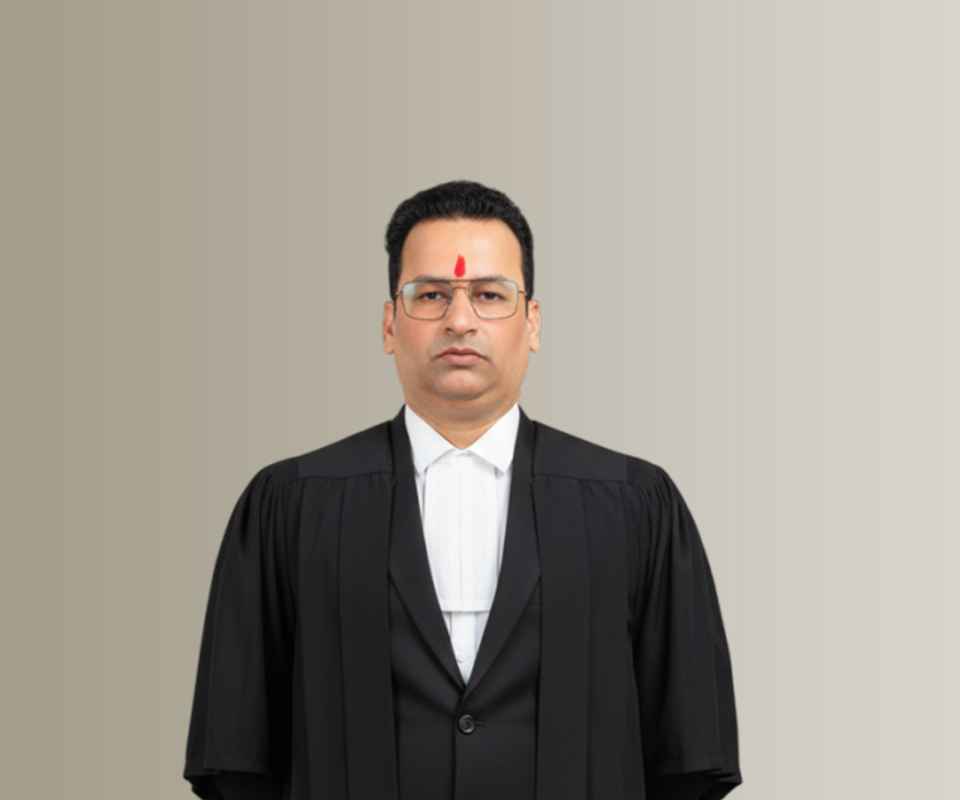Dear client,
1. Efficiency of process
With 688 District Courts, 25 High Courts and around 51.25 million pending cases, the Indian diaspora seems to have a penchant for litigation. Out of these, 81,386 cases are pending in the Supreme Court of India, and 6,186,863 cases are pending in High Courts across the country, as per the information available on the National Judicial Data Grid (NJDG) on May 16, 2024. Even though every High Court has a high disposal rate compared to the number of cases instituted, courts cannot reduce this huge pendency of cases. This is mostly because a large number of new cases are filed each day, and unless judicial infrastructure is expanded, the mounting pendency continues to challenge the judicial system.
The lack of Judges required to dispose of cases turns out to be the major reason for this problem, thereby affecting the efficiency of courts. However, in 2023, the Supreme Court of India took several measures to reduce pendency at the Apex Court, such as constituting Special Benches to expedite the disposal of three-judge bench matters. Approximately 166 such sittings were held in 2023. The impact is evident from the disposal rate, which rose to 52,220 cases in 2023 compared to 39,800 cases in 2022, 20,670 cases in 2021, and 24,586 cases in 2020.
However, the scenario for matters relating to intellectual property (IP) and alternative dispute resolution (ADR) is different. These matters take less time to dispose of and proceed more efficiently. High Courts are creating independent divisions with dedicated rules for IP matters that ensure all proceedings are completed more efficiently and expeditiously. Delhi High Court and Madras High Court have already constituted an IP division, and Calcutta High Court and Bombay High Court are on their way to creating such dedicated divisions. Generally, IP matters are contested heatedly only until the interim stage, when either the injunction is allowed or refused, and parties settle their matters soon after, avoiding prolonged trials.
If IP matters are disposed of expeditiously because of higher instances of settlement, ADR mechanisms, on the other hand, have inherent mechanisms to dispose of the cases at a faster pace. The ADR mechanisms available in India are mediation, settlement conferences, conciliation, arbitration, etc. For instance, over the last few years, the National Lok Adalat, organised by the National Legal Services Authority (NALSA), has also contributed to reducing the number of pending cases through ADR mechanisms. In the fourth National Lok Adalat held on December 9, 2023, 11,743,465 cases were resolved, including 1,198,278 pending cases and 10,545,187 pre-litigation cases.
To summarise, although courts are the preferred forum for litigation, the process is less efficient than ADR mechanisms available in the country. The Government of India has revamped the criminal substantive and procedural laws, which will come into force from July 1, 2024. Bharatiya Nyaya Sanhita, 2023 will replace the Indian Penal Code, 1860, whereas the Bharatiya Nagarik Suraksha Sanhita Bill, 2023 will replace the Code of Criminal Procedure, 1973 and the Bharatiya Sakshya Bill, 2023 will replace the Indian Evidence Act, 1872 (Evidence Act). These laws are being brought in to tackle many issues, the major one being the pendency of criminal cases to the tune of approximately 3 million before courts. Thus, it is expected that in the coming years, the efficiency of the courts will likely increase with the modernisation of laws.
2. Integrity of process
Indian courts believe in the dictum laid down by Lord Hewart in the Rex. v. Sussex Justices case of 1924, which states that “[j]ustice must not only be done but must also be seen to be done”. The courts follow processes that are clear, transparent, and consistent, and they build trust and faith in the judicial system. The courts are considered institutions of high integrity, and people have supreme faith in the processes of the judicial system, including ADR. There is a well-structured hierarchy of courts established under the Constitution of India, and the decisions of lower courts are guided by the precedents established by the High Courts and the Supreme Court of India, which is the Apex Court in India. In fact, Article 141 of the Constitution stipulates that the law declared by the Supreme Court shall be binding on all courts within the territory of India.
This ensures the integrity of decisions, and, in case any court deflects from such judicial precedent, such decisions are easily challengeable before the higher court. Judicial decisions show the courts’ commitment to lawfulness and justice, and they do not condone or associate themselves with unlawful acts, even those of the Government or government agents. Although there is no single uniform code for judicial ethics in India, three prime documents followed by Judges are essential for an independent, strong and respected judiciary and are indispensable for the impartial administration of justice. These documents are the Restatement of Values of Judicial Life adopted by the Chief Justices’ Conference of India, 1999, the Bangalore Principles of Judicial Conduct, 2002, and the Oath of a Judge, as contained in the Third Schedule of the Constitution of India.
The Supreme Court of India has highlighted how judicial ethics and the independence of the judiciary play an important role in dispensing justice in multiple judicial precedents. In S.P. Gupta v. Union of India, it was observed by the Supreme Court “that the concept of independence of the judiciary is a noble concept which inspires the constitutional scheme and constitutes the foundation on which rests the edifice of our democratic polity. If there is one principle that runs through the entire fabric of the Constitution, it is the principle of the rule of law. Under the Constitution, it is the judiciary that is entrusted with the task of keeping every organ of the State within the limits of the law and thereby making the rule of law meaningful and effective. It is to aid the judiciary in this task that the power of judicial review has been conferred upon the judiciary. It is by exercising this power, which constitutes one of the most potent weapons in the armoury of the law, that the judiciary seeks to protect the citizen against violation of his constitutional or legal rights or misuse or abuse of power by the State or its officers”.
Civil and criminal procedures are well-defined and coded laws passed by the Parliament of India and are required to be adhered to by civil and criminal courts. Courts are always guided by judicial principles and cannot arbitrarily stray from natural justice and judicial precedents. Because of these procedural laws, the integrity of the processes followed by courts is secured. Similarly, ADR processes are also well defined and guided by set rules, ensuring procedural integrity.
3. Privilege and disclosure
Indian laws also secure the integrity of the attorney-client relationship by extending protection to communication between a legal adviser and the client. Privileged communication is dealt with under Sections 126 to 129 of the Evidence Act, which will be replaced by the new provisions of Bharatiya Sakshya Adhiniyam, 2023 upon its enactment. The current provisions recognise privileged communication such that no one can compel the disclosure of communications exchanged between an attorney and client or the stating of content or conditions of documents in possession of the attorney in the course of the attorney’s employment by the client.
However, these provisions also provide certain exceptions to privileged communication. This privilege is denied if the communication is in furtherance of any illegal purpose or facts coming to the attention of the attorney showing that either crime or fraud has been committed since the commencement of the attorney’s employment on the concerned matter. Apart from the Evidence Act, the Bar Rules of India also stipulate that an advocate shall not directly or indirectly commit a breach of the obligations of privileged communication imposed by the Evidence Act. The privilege would also extend to the employees of the advocate/law firm, which could include accountants, paralegals, and other employees. Unlike some countries, in India, there is no waiver of privilege even if the client himself presents some evidence regarding privileged communication. If a lawyer is summoned as a witness by the client, it does not amount to consent to disclose, but if the client himself asks questions about the confidential information, then it amounts to an implied waiver of privilege.
4. Evidence
To date, the Indian judicial system is governed by the Evidence Act, which lays down principles on the admissibility and relevance of evidence. However, from July 1, 2024, Bharatiya Sakshya Adhiniyam, 2023 (47 of 2023) shall come into force. The new law consolidates and provides general rules and principles of evidence for fair trial. It has 170 sections, divided into 12 chapters and a Schedule for Certificate. The consolidation of the sections brings uniformity and precision in terms of the advancement of technology, as well as removing any reference to the obsolete terms used in the colonial era.
Further, the terminology under the new law has been kept gender neutral. Some major changes include the emphasis on digital and electronic evidence. Until the new law is implemented, the provisions of the Evidence Act prevail, which are, in essence, adopted in the new law.
Evidence is classified into oral evidence and documentary evidence. The Evidence Act also recognises circumstantial evidence if there is no sufficient direct evidence to prove any fact in the issue. Based on the circumstantial evidence, the court can assume and construct a nexus between the existing evidence (circumstantial) and the inference. In a civil case, the plaintiff is called to lead the evidence, and once the plaintiff’s witnesses are examined, the defendant’s witnesses are called to provide evidence. In appropriate circumstances, courts also allow the re-examination of witnesses. The witnesses are required to give evidence in the form of an affidavit. The courts analyse the evidence based on the preponderance of probabilities in a civil case. In a criminal case, however, the prosecution must prove its case beyond a reasonable doubt.
The Evidence Act also lays down certain presumptions that the courts would make unless rebutted. A court may presume the existence of any fact it thinks likely to have happened, having regard to the common course of (a) natural events, (b) human conduct, and (c) public and private business in relation to the facts of the case. The evidence law also recognises confessions, but only judicial confessions are admissible under the law. Judicial confessions are made to a Magistrate during the judicial proceeding or at the time of court trial, and they must be free, voluntary, and genuine, such that no fact is left to be proved further by the prosecution. Even dying declarations are admissible because it is assumed that the words of a dying man are very serious and a person on the verge of death is not likely to lie or connect a case to a malicious prosecution of an innocent person.
The opinion of a third person is also admissible if it amounts to an “expert opinion” as an exception to the principle that evidence can only be obtained based on facts within the knowledge of a witness. The “expert opinion” exception is based on the principle that, sometimes, the court cannot conclude all the matters of a case that are technically complicated and professionally sophisticated, and the experts have special knowledge of and skills in those matters.
5. Costs
The Constitution of India mandates that the State shall secure and protect, as effectively as it may, a social order in which justice shall inform all institutions of national life. It provides that the State shall secure that the operation of the legal system promotes justice based on equal opportunity and shall, in particular, provide free legal aid by suitable legislation or schemes or any other means to ensure that opportunities for securing justice are not denied to any citizen by reason of economic or other disabilities.
Even though the Constitution mandates securing justice for all, the cost of litigation in India is high and continues to rise. The main components of the cost of litigation are advocate fees, court fees and process fees, travelling expenses of litigants and witnesses, clerical costs such as costs of photocopying, typing, etc., costs on account of adjournments and costs payable by the losing party to the successful party. Out of these costs, the advocate fee is either reduced or removed altogether under various schemes of free legal aid extended to persons below a certain threshold of income and also to women.
According to data obtained from the Law Commission Report on Cost of Litigation (1988), the top members of the legal fraternity in the Supreme Court at that time used to charge a rate of USD 1,400 per day of four-and-half working hours. However, this cost has increased greatly over the years and nowadays, for giving a written opinion, an advocate fee varies from USD 250 to USD 650 or more, while the cost of appearance could be as high as USD 25,000 per appearance. The costs incurred in litigation are put under the heading of “deduction in computing the permissible profits and gains of business and profession” under the Income Tax Act, and this encourages payment in a higher bracket.
6. Litigation funding
Litigation funding, or third-party funding, is a lesser-known concept in India. It safeguards the interests of parties who are unable to finance themselves and provides an opportunity for financers to get a better return on their investments. Litigation funding is non-recourse funding where a third party provides financial support, which, in turn, enables the litigant to bear the costs of litigation or arbitration disputes. The COVID-19 pandemic has caused resource shortages and financial challenges for businesses in various sectors. In such circumstances, litigation funding or third-party funding can emerge as a viable option for businesses to pursue their litigation claims.
The establishment of the Indian Association for Litigation Financing (IALF) in February 2021 by practitioners, law firms, and third-party funders is a positive development in this field. The IALF aims to self-regulate litigation funding in India and raise awareness about the business of litigation finance. This association represents the first step towards establishing a regulatory framework for litigation funding. Third-party litigation funding is permitted in India; however, there is no specific legislation or government body governing the same. Therefore, currently, the terms of a third-party litigation funding contract are subject to the Indian Contract Act, 1872.
The Hon’ble Supreme Court of India, in Bar Council of India v. AK Balaji (2018) 5 SCC 379, observed the legal permissibility of third-party funding in litigation and clarified that legal financing agreements are not prohibited in India. The Insolvency Law Committee (ILC) has also acknowledged the need for funding in litigation related to avoidance transactions under the Insolvency and Bankruptcy Code (IBC) in India. The ILC report examined various funding options, including third-party litigation funding, and concluded that no legal change is required as the existing provisions do not prohibit third-party litigation funding in India.
7. Class actions
A class action suit, or representative action, is a form of lawsuit in which a large group of people collectively brings a claim with similar interests to the court and/or a group of defendants. Such a group is collectively known as a “class”. A class action is also a procedural instrument that enables one or more claimants to file a claim and pursue litigation on behalf of a larger group, class or entities with common rights and grievances. Indian statutes provide for collective actions, but such provisions are rarely used and are not a very popular civil remedy in India. To be considered a “class”, the law mandates that either the interest must be common, or they must have a common grievance that they seek to get redressed.
A class action can be brought under a variety of special statutory and constitutional provisions. In July 2020, the Consumer Protection Act, 2019 came into force, replacing the Consumer Protection Act, 1986, which provided class action-enabling provisions. Class actions have also been provided for under India’s Competition Act, 2002. The Indian legislature also introduced the concept of class actions into Section 245 of the Companies Act, 2013, by way of “specialised class actions” by shareholders and depositors of a company, which is likely to have a far-reaching impact on the use of class actions as an effective remedy. However, in writ jurisdiction, representative actions or actions brought in the public interest by way of public interest litigation have been popular in India and are widely used.
8. Interim relief
Provisions of interim relief are incorporated in almost every procedural and substantial law. In the code that defines a civil procedure, interim relief is provided by way of interim/temporary injunctions and even ex parte interim relief. Ex parte interim relief is where an injunction is granted without notifying the opposite party, and if non-grant of such injunction would cause serious injustice and irretrievable harm. Temporary injunctions are explained in the Specific Relief Act, and provisions for the granting of temporary injunctions, including ex parte injunctions, are also imbibed in the Arbitration and Conciliation Act, 1996 (1996 Act).
Indian courts have laid down certain guidelines and principles for the granting of temporary injunctions. According to these guidelines, a prima facie case must be established that demonstrates that there is a serious legal threat to a person’s right, property, or contract. The balance of convenience is to be measured to ascertain which party would be harmed more if an injunction is granted. In cases of delay or acquiescence, the balance of convenience tilts in favour of the defendant and temporary injunctions may be refused. The next point of consideration is whether the non-grant of an injunction would cause irretrievable harm and injury to the party seeking the injunction.
9. Enforcement of judgments/awards
Judgments and awards arise from three situations in India – domestic awards resulting from arbitrations held in India, decrees of court, and foreign awards. Domestic awards passed by an Arbitral Tribunal in arbitrations seated in India are deemed orders of the court and are enforceable in the like manner under the provisions of the Code of Civil Procedure, 1908. Both decrees of court and domestic arbitral awards can be enforced by filing an application for execution of the award in a court of competent jurisdiction. Only in cases where an arbitral award is challenged or a decree is appealed can the court provide injunctive relief and grant a stay on the execution of the arbitral award/decree if a separate application for a stay of execution is filed. The execution court cannot re-examine the arbitral award/decree or the merits of the case. The only enquiry an execution court can make is regarding the enforceability of the award, and once the award or decree is held to be enforceable, the court takes steps to enforce it by way of issuance of a warrant of sale and/or warrant of attachment.
India is a signatory to the Convention on the Recognition and Enforcement of Foreign Arbitral Awards, 1927, the Geneva Convention on the Execution of Foreign Arbitral Awards, 1927 and the Hague Convention. Under the Arbitration and Conciliation (Amendment) Act, 2015, there are two avenues available for the enforcement of foreign awards in India, viz., the New York Convention and the Geneva Convention, as the case may be. Sections 44 to 52 of the Arbitration and Conciliation (Amendment) Act, 2015 deal with foreign awards passed under the New York Convention. There are two prerequisites for enforcement of foreign awards under the New York Convention, namely:
The country must be a signatory to the New York Convention.
The award shall be made in the territory of another contracting state that is a reciprocating territory and notified as such by the Central Government.
Sections 53 to 60 of the Arbitration and Conciliation (Amendment) Act, 2015 contain provisions relating to foreign awards passed under the Geneva Convention.
The conditions for enforcement of foreign awards under the Geneva Convention are provided under Section 57 of the 1996 Act. These are as follows:
the award has been made in pursuance of a submission to arbitration that is valid under the law applicable thereto;
the subject matter of the award is capable of settlement by arbitration under the law of India;
iii. the award has been made by the arbitral tribunal provided for in the submission to arbitration or constituted in the manner agreed upon by the parties and in conformity with the law governing the arbitration procedure;
the award has become final in the country in which it has been made, in the sense that it will not be considered as such if it is open to opposition or appeal or if it is proved that any proceedings to contest the validity of the award are pending; and
the enforcement of the award is not contrary to the public policy or law of India.
Foreign decrees may arise either from a reciprocating country or a non-reciprocating country. Foreign decrees arising from reciprocating countries (declared by the Government of India) are executed in the same manner as domestic decrees, but a fresh suit is to be filed for enforcement of a foreign judgment originating from a non-reciprocating country.
10. Cross-border litigation
Agreements and contracts executed between commercial organisations give rise to disputes that are not within the confines of the municipal laws of a particular country because the transactions are “cross-border” in nature. Adjudication of cross-border business disputes demands expertise of a different sort, especially when the organisations in dispute are from nations that follow different legal systems.
Such cross-border disputes are found to be mostly commercial in nature and arising from contracts, and there are primarily three covenants relating to territory:
“governing law” as to the law of which country shall be taken recourse to if and when deals between international corporations go bitter;
“jurisdiction clause”, as to courts of which country shall have a say in the matter in dispute; and
“arbitration clause”, as to how conflicts are to be resolved between corporations before they are formally brought before the court of law for adjudication, such as mediation, conciliation, and arbitration.
International arbitration
Arbitration law in India is governed by the 1996 Act based on the UNCITRAL (United Nations Commission on International Trade Law) Model Law. The 1996 Act is divided into two parts:
“Part I” relating to domestic arbitrations; and
“Part II” relating to international commercial arbitrations.
“International commercial arbitration” is defined under the 1996 Act as arbitration relating to disputes arising out of a legal relationship, whether contractual or not, which are considered commercial as per the law in force in India, and where one or more of the parties are entities (personal or impersonal) residing outside India.
India has taken major strides in recent years to enhance its position as a key player in international arbitration. The amendments introduced in 2015, 2018, and 2021 to the 1996 Act have played a crucial role in addressing various deficiencies and streamlining the arbitration process, thereby making it more efficient and conducive for international arbitration. India has a plethora of arbitral institutions that carry out arbitrations in line with the internationally recognised best practices and principles of arbitration. Some of these institutions are: (i) the Delhi International Arbitration Centre (DIAC), which was established in 2009 and operates under the aegis of the Delhi High Court; (ii) the Mumbai Centre for International Arbitration (MCIA) , which was set up in 2016; and (iii) the Indian Council of Arbitration (ICA) , which was set up as an autonomous body in 1965 pursuant to the recommendation of the Indian Ministry of Commerce.
Most recently, the India International Arbitration Centre (IIAC) was established via notification dated June 13, 2022, in terms of the India International Arbitration Centre Act, 2019 (as amended), to create an independent and autonomous body for enabling institutional arbitration. Additionally, the recent establishment of the Gujarat International Maritime Arbitration Centre (GIMAC) in GIFT City is a notable development. GIMAC serves as a specialised ADR centre specifically focused on resolving disputes related to the maritime and shipping sector.
This initiative aims to create a state-of-the-art facility that meets global standards and provides an attractive venue for international arbitration. These initiatives, along with the ongoing reforms and improvements in the arbitration framework, demonstrate India’s commitment to fostering a robust and efficient arbitration ecosystem. By providing specialised arbitration facilities, addressing procedural complexities, and ensuring the enforceability of arbitral awards, India is working towards becoming a prominent destination for international arbitration and attracting international businesses to choose India as their preferred seat for dispute resolution.
11. Mediation and ADR
There has been a considerable rise in mediation and ADR processes over the past decade. This is because these processes are faster than conventional courts and involve the open participation of the parties with the aim to settle. In India, the essence of mediation is that it (i) focuses upon the parties’ own needs and interests, (ii) provides for a full disclosure of competing interests and positions, (iii) confers upon the parties a right of self-determination, (iv) allows for procedural flexibility, and (v) maintains privacy and confidentiality. The mediator is the guardian of the process, and it is the mediator who must ensure that parties maintain complete confidence in the proceedings.
The Code of Civil Procedure (Amendment) Act, 1999 provides provisions for the settlement of disputes outside court. The difficulty lies in the fact that it mandates that where it appears to the court that there exists an element of settlement that may be acceptable to the parties, the court shall formulate the terms of settlement and, after receiving comments from the parties, may reformulate the terms of possible settlement after which parties may be referred to arbitration, conciliation, judicial settlement, or mediation. The requirement that the court must formulate the terms of possible settlement places a significant burden on the court even before referring the parties to mediation. The court, in such a case, may be required to spend a considerable degree of time and effort in imploring parties to settle their dispute and to draw up the terms of a possible settlement.
The very object of conciliation or mediation is to place the parties under the facilitative function of a mediator, who will enable them to explore their interests and consider various options for negotiating settlements. Mediation does not necessarily require the association of courts and judicial institutions. Yet, particularly in the incipient stages, courts would have to discharge important functions in relation to ADR techniques. This is quite apart from the position that, as a matter of law, the Code of Civil Procedure, 1908 does postulate an affirmative role for the courts in promoting ADR techniques. A significant part of the focus of mediation in India is on the functional relationship between ADR techniques and a reduction of arrears.
While India did not previously have standalone legislation dealing with mediation, recently, the Government has notified the Mediation Act, 2023 (Mediation Act). It lays down the legislative framework for mediation to be adopted by disputing parties, especially institutional mediation, where various stakeholders have been identified to establish a robust and efficacious mediation ecosystem in India. It also focuses on online mediation and community mediation. While it has yet to come into force completely, certain provisions have been brought into force as of October 9, 2023. Although India is a signatory to the Singapore Convention on Mediation (Singapore Convention), it is not yet ratified. Thus, the Mediation Act does not adopt the Singapore Convention, which provides a framework for cross-border enforcement of settlement agreements resulting from international mediation. Consequently, the Mediation Act applies only to international mediations where the mediation is conducted in India and is not applicable to mediations conducted outside India. Thus, the enforcement of mediated settlement agreements resulting from mediation conducted outside India is not mentioned in the Mediation Act.
Additionally, there are several statutes containing mediation provisions, such as the Code of Civil Procedure, 1908, the 1996 Act, the Companies Act, 2013, the Commercial Courts Act, 2015, and the Consumer Protection Act, 2019.
Should you have any queries, please feel free to contact us!









